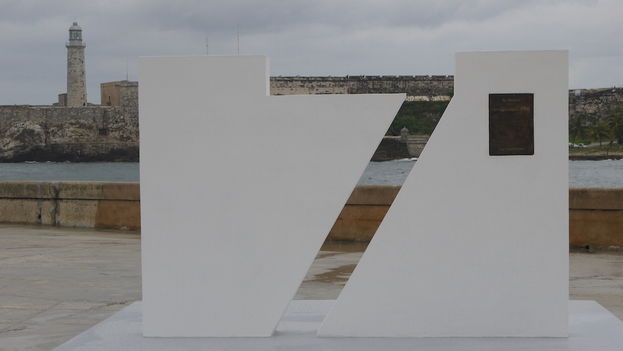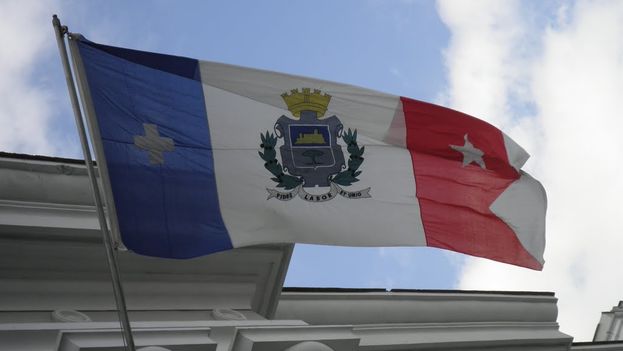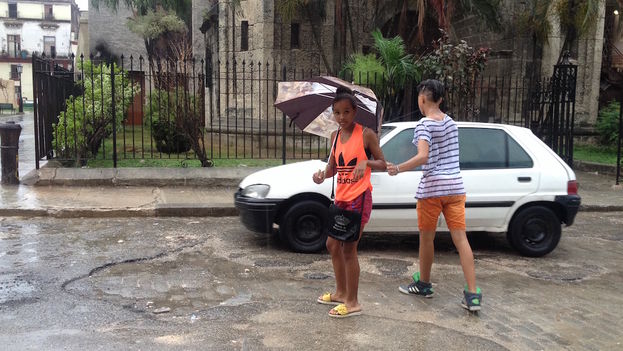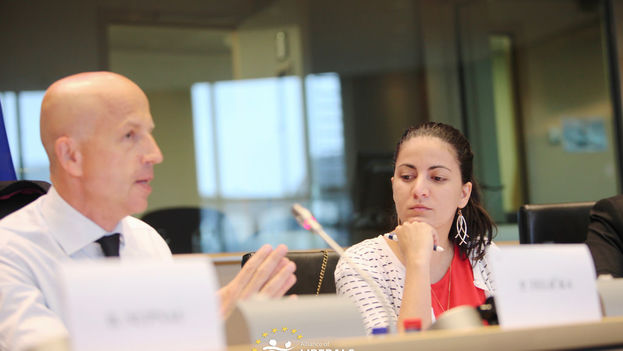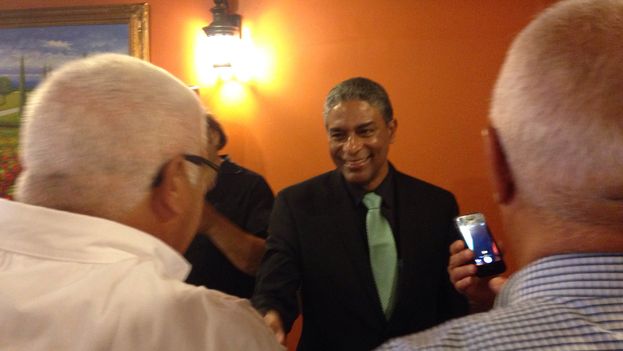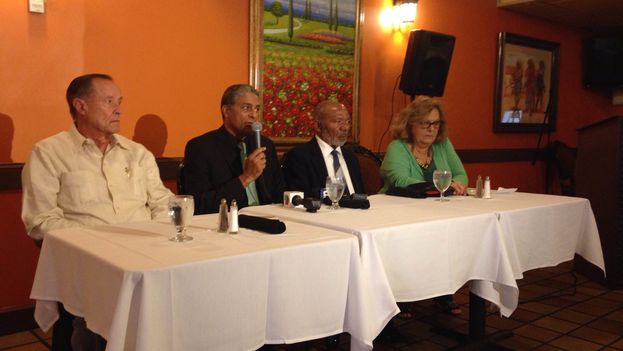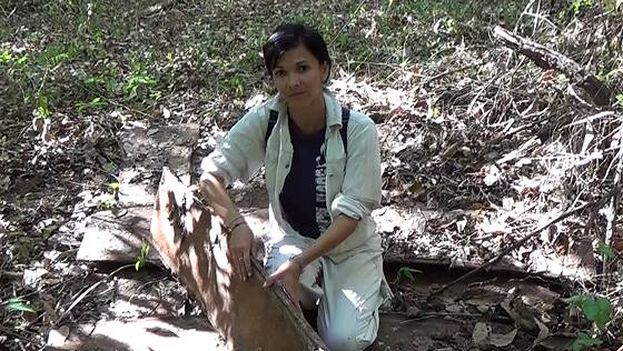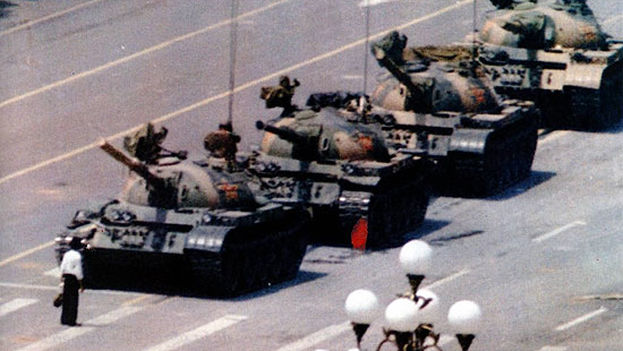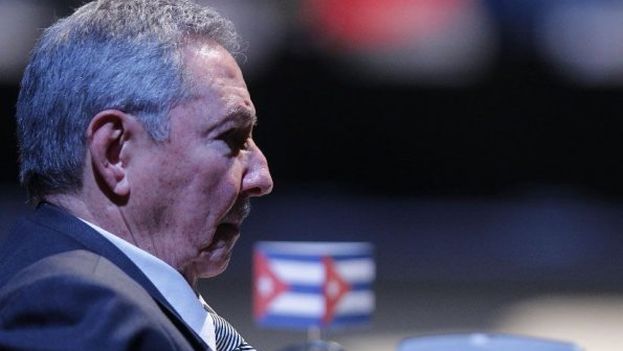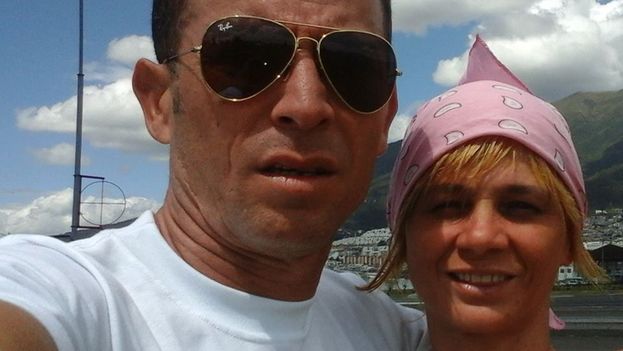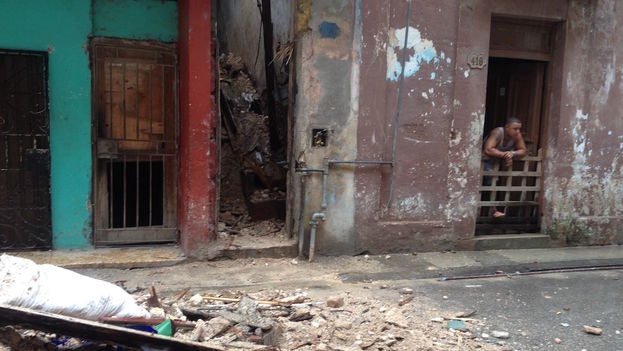
![]() 14ymedio, Luz Escobar, Havana, 8 June 2016 – The residents of 418 Villegas Street, in Old Havana, were unhurt after a building collapse at nine o’clock Wednesday morning. The collapse of the roof of the house on the first floor was one of the 17 partial and total building collapses that occurred in the Cuban capital, four of them in the historical district, as a result of the heavy rains of recent days.
14ymedio, Luz Escobar, Havana, 8 June 2016 – The residents of 418 Villegas Street, in Old Havana, were unhurt after a building collapse at nine o’clock Wednesday morning. The collapse of the roof of the house on the first floor was one of the 17 partial and total building collapses that occurred in the Cuban capital, four of them in the historical district, as a result of the heavy rains of recent days.
With very few belongings salvaged from the rubble, residents of the place waited Wednesday afternoon for the authorities to address their situation. “We’ll sleep outside here, even though it’s raining, so that no one steals anything,” said a young resident of the property, who maintained the illusion that “some police officers to guard things” would arrive. continue reading
Leticia Ramirez, seven months pregnant and also a resident of the collapsed building, said that if something had happened “at six o’clock, when everyone was in the house, it would have ended in a tragedy.” She explained that the collapse “could have been avoided” because the three families affected by the collapse of part of the building had started “years ago” the process to obtain a bank loan to undertake repairs.
However, Ramirez says that the bureaucratic process to obtain permits to undertake the work in the Havana historical center took too long. “And in the end look what happened.” The woman enumerated all the problems, pointing to a pile of rubble that on Wednesday blocked the passage of cars and pedestrians.
The plight of the residents of the Villegas Street began long before the June rains. Banking authorities took three years to approve a subsidy request to allow them to purchase materials for the reconstruction of the building. Money was only allocated last December.
From that moment there began a series of impediments from the inspectors and specialists from the Office of the City Historian, in particular with regards to the authorization to place scaffolding around the façade of the building to undertake the repairs. The signature of Eusebio Leal Spengler’s office didn’t arrive in time.
Ramirez’s mother went back and forth for months, “from one office to another,” says the young woman, but “without resolving anything.” The pregnant woman stresses that she will not accept shelter near the well-known Casa del Pedagogo “with a mattress thrown on the floor,” a place that frequently shelters neighbors who have lost their homes in building collapses.
We are owners and nobody here wants to go into the shelter,” insists the woman, who noted sarcastically that a few hours before the building collapse Havana had been declared a “Wonder City.”
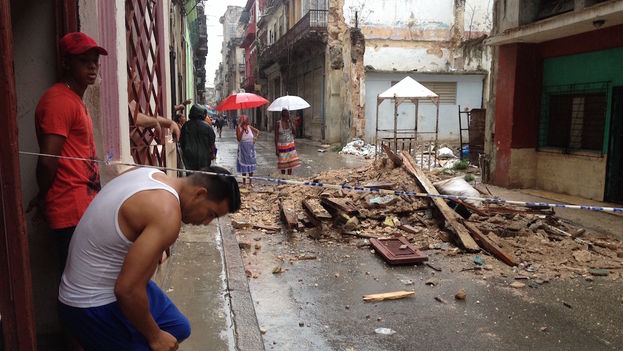
Older residents were clearly desperate over the loss of their roof and a good part of their furniture and personal possessions. Adelaida said that they had been awarded a subsidy but that there were so many obstacles to “purchasing materials” that the work hadn’t begun.
As night fell, they still remained at the site waiting for the fire department to finish evacuating the contents of the building. As of noon on Thursday, none of the affected residents had received a visit from any representative of the People’s Power.
Some 1.7 million households, representing 39% of the housing stock in Cuba, is in fair or poor condition or worse, according to a report from the Housing authorities. During 2015, only 23,003 new houses were built throughout the country, of which 10,417 were built by people’s own efforts, a good part of them financed by loans awarded by state banks.
Between 2012, when the granting of credits to “natural persons” began, to the end of 2015, they had awarded 5.1 billion pesos (212 million dollars), of which 60% was earmarked for home repairs, according to the official press.

